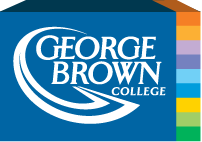About Culinary Skills (preparatory Training) Program in George Brown College
This unique program provides people who have a history of addiction and/or mental health issues with the opportunity to receive training and employment in the food service industry. The program is designed for students who see work as part of their recovery process. The goal of this program is to help people with barriers to training and employment take the first steps towards a job in Toronto’s food industry.
FULL DESCRIPTION
Augmented Education is a training and employment support model developed by George Brown College and the Centre for Addiction and Mental Health (CAMH). The Culinary Skills program is one of two Augmented Education programs currently offered at George Brown College.
This employment-focused program offers people with a history of mental illness and/or addiction the choice and the opportunity to receive training and employment in the food service industry. The Culinary Skills program is designed for students who see work as part of their recovery process.
The goal of the program is to help people recovering from addiction and/or mental illness take the first steps toward a job in Toronto’s food service industry. There are no fees for this program.
This innovative program includes classroom and kitchen lab instruction, 150 hours of work placement, and workshops.
Class and kitchen lab time is approximately 30 to 35 hours per week, with support and tutoring available from program coaches.
YOUR CAREER
Successful participants will be qualified for entry-level food preparation jobs in commercial food service, cafeterias, fast food outlets, restaurants and catering operations.
Academic qualification equivalents
- Two- or three-year Diploma or Bachelor's Degree in Information Technology, Computer Science or a related field.
English language requirements (one of the below):
- IELTS : 6.0, minimum 5.5 in each skill band
- TOEFL : 80 (online) minimum 20 in each skill band
- PTE : 54, overall minimum 50 in each skill band
George Brown College Highlights
| Type of College |
Public |
| Campus Setting |
Urban |
| Location |
Toronto, Ontario, Canada |
| Number of Campuses |
3 + 3 (location/centers) |
| Type of programs |
Certifications, Diploma, Degree, and Continuing Education |
| Number of full-time students |
32,000 + |
| Number of part-time students |
3,000 + |
| %age of International Students |
17% |
| Official Website |
www.georgebrown.ca |
George Brown College The Average Tuition Fees And Other Expenses
| Student Type |
Tuition Fee |
| Canadian students |
2780 - 15310 USD(two semesters) |
| International Students |
11,320 - 23,900 USD(two semesters) |
Tuition fees for some of the popular programs offered by George Brown College are mentioned below
| Course Name |
Tuition Fee(USD) |
| B.Com |
6,052 |
| B.Tech |
7,272 |
| BSN |
5,430 |
| Wireless Network(Postgraduate) |
4,365 |
| Construction Management(Postgraduate) |
6,183 |
| Marketing Management(Postgraduate) |
4,176 |
Residence Fees
Although rents may vary depending on quality and location, most rents listed by the Housing Service are within the following ranges:
| Accommodation Type |
Rent |
| Shared Accommodation |
500 - 700 USD per month |
| One - Bedroom Apartment |
900 - 1,200 USD per month |
| Two - Bedroom Apartment |
1,100 - 1,500 USD per month |
| Three - Bedroom Apartment |
1,300 - 1,800 USD per month |
Meal Plans
The college provide three types of meal plan options its students, the details of which are mentioned below:
| Plan Name |
Cost |
| Annual Swipe & Save Plan |
1700 USD |
| Semester Swipe & Save Plan |
850 USD |
| Swipe & Save Reloadable Card |
400 USD |
